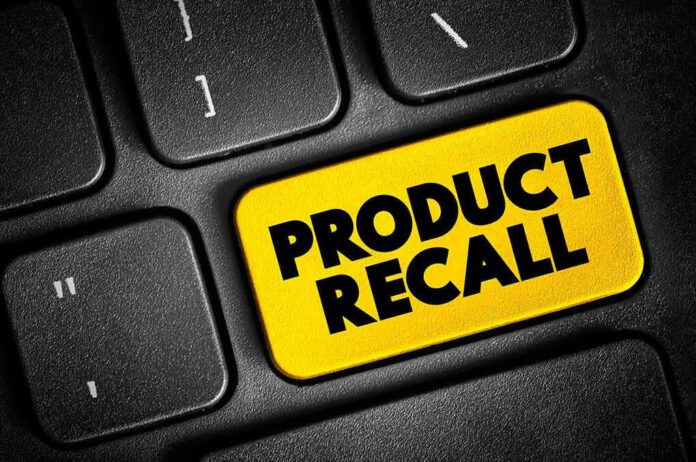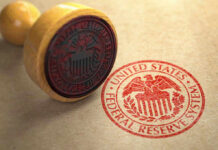Topo Chico Mineral Water, a beloved beverage owned by Coca-Cola, just got yanked from shelves across five states after a nasty little bacteria showed up where it’s not welcome—and not a single case of illness has been reported.
At a Glance
- Topo Chico Mineral Water, owned by Coca-Cola, recalled 241 cases over possible Pseudomonas bacterial contamination.
- No illnesses reported as of June 25, 2025; all affected product pulled from Costco and Sam’s Club in Arizona, Louisiana, Nevada, New Mexico, and Texas.
- FDA rates recall as Class II risk—temporary or medically reversible adverse health effects possible.
- Recall highlights ongoing food safety challenges in the bottled water industry and puts Coca-Cola’s quality control under scrutiny.
- Consumers, especially those with weakened immune systems, advised to return or discard affected bottles.
What Happened and Why It Matters
Coca-Cola initiated a voluntary recall for Topo Chico Mineral Water on May 28, 2025, after a distributor raised concerns that certain 18-packs sold at Costco and Sam’s Club might be contaminated with Pseudomonas bacteria, including the notorious Pseudomonas aeruginosa. This recall, now classified as a Class II risk by the FDA, means that while the chance of serious harm is low, the bacteria could cause temporary or reversible health problems, particularly for those already vulnerable.
All affected product—241 cases—has been pulled from about 40 retail locations across the Southwest. For the millions of Americans who drink bottled water, especially those with health conditions, this is a reminder that even the biggest brands can’t always guarantee safety. But here’s the kicker: not a single illness has been reported. That’s either a testament to the recall system working, or to the fact that most Americans have immune systems that laugh in the face of a little bacteria.
Who’s Affected and Who’s Responsible
The primary stakeholders here are Coca-Cola, the Mexican manufacturer Cia. Topo Chico, the FDA, major retailers like Costco and Sam’s Club, and, of course, consumers. Coca-Cola’s reputation is on the line, and rightfully so—after all, it’s their brand that’s getting dragged through the mud. The manufacturer is responsible for quality control, but as always, the buck stops with the parent company. The FDA, meanwhile, is the referee, making sure everyone follows the rules and keeping public health at the forefront.
Retailers are caught in the middle, scrambling to pull product and field calls from worried customers. Consumers are left wondering if their favorite fizzy water is safe, especially those with compromised immune systems, who are most at risk. For everyone else, it’s just another day in the life of American consumerism—trusting big corporations to keep us safe, only for them to occasionally remind us why we shouldn’t.
Short-Term and Long-Term Implications
In the short term, this recall is a headache for Coca-Cola and the retailers involved, but it’s unlikely to make a huge dent in their bottom line. The real impact is on consumer trust. Every time a major brand has to pull a product, it chips away at the illusion of infallibility that these companies spend billions to maintain. In the long term, this could mean increased scrutiny of bottled water safety and more calls for regulation—something that will likely be met with eye rolls from those who remember how well government oversight worked during the pandemic.
The recall also highlights the ongoing challenges of food safety in a global supply chain. Even with the best intentions and the most rigorous standards, bacteria can slip through the cracks. For those who love to blame corporations for every little thing, this is a reminder that nature is unpredictable and sometimes, despite everyone’s best efforts, things go wrong.
Expert Insights and Industry Reaction
Industry experts are quick to point out that Pseudomonas contamination, while rare, is a known risk in bottled water production. The recall itself is seen as a good thing—proof that the system works and that companies are willing to act quickly to protect consumers. Public health professionals note that the risk to most people is low, but those with weakened immune systems should be cautious. Consumer advocates praise the recall as a necessary step, while industry analysts highlight the challenges of maintaining product safety at scale.
Environmental groups, never ones to miss an opportunity, are using the incident to push their anti-plastic, pro-reusable bottle agenda. Never mind that Topo Chico is mostly sold in glass bottles—when it comes to activism, facts are often optional. Still, it’s a reminder that every product recall is an opportunity for someone to push their pet issue, whether it’s relevant or not.
What Comes Next
For now, the recall remains active, and consumers are advised to return or discard any affected bottles. Coca-Cola and the FDA will continue to monitor the situation, and if any illnesses are reported, you can bet the media will be all over it. In the meantime, this is a wake-up call for anyone who assumes that just because a product comes from a big company, it’s automatically safe.
For those who want to avoid the drama, there’s always the option to drink tap water—though, in some parts of the country, that’s its own kind of gamble. At the end of the day, this recall is a reminder that in the modern world, nothing is ever as simple or as safe as it seems, and that sometimes, even the most iconic brands can’t escape the occasional bump in the road.











